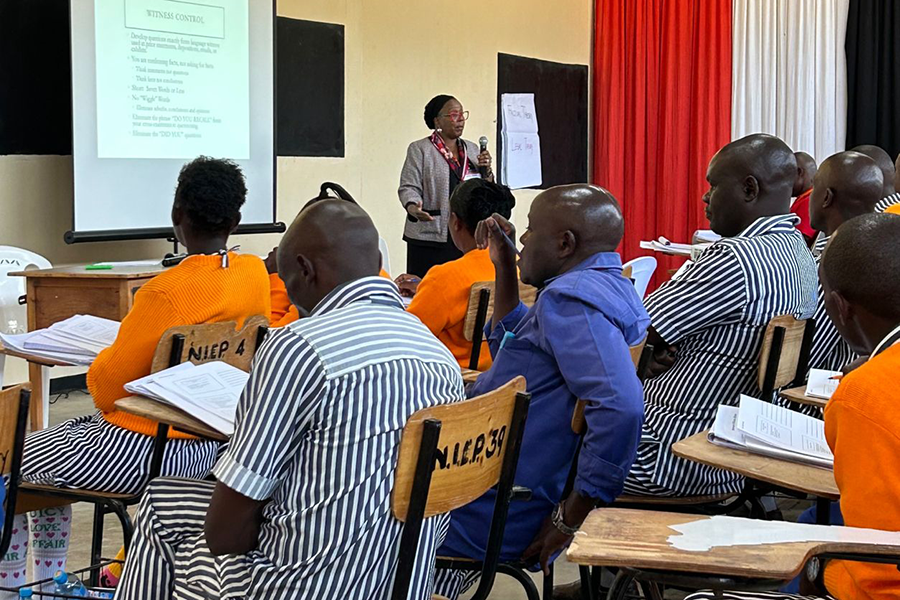How did you become involved with Justice Defenders?
“I've been a faculty member for NITA training lawyers in trial advocacy skills going back to the early 2000s, and [Honorable Justice Ann Claire Williams] was on the board. When the judge started to draw the board’s eye toward international training, particularly in sub-Saharan Africa, she tapped me. One of the first programs that we were able to do together was a collaboration between NITA, the State Department, and an NGO known as Lawyers Without Borders. We fashioned a program around representing victims of domestic violence in Kenya, training the lawyers who were already in place. That was my first foray into sub-Saharan Africa and conducting training.
“My most recent assignment was in Naivasha, a rural community outside of Nairobi where a maximum-security prison is located. Justice Defenders operates inside of the prison. The founder of Justice Defenders is not a lawyer; it is actually someone who was initially providing services for the inmates and recognized the need to help the inmates with self-representation because, unlike our system, folks who are convicted are not entitled to representation. They don't have a lawyer; they don’t have an appellate lawyer; they don't have someone to help them if they have been wrongly convicted or falsely accused.
“One of the directors of Justice Defenders, Miriam Wachira, is also connected to Judge Williams. She happens to be one of the people that we trained back in 2006. Now, she's leading Justice Defenders. Wachira and I were together in October 2022 for another training of public defenders in Nigeria, and we got to talking — this training that we’ve led for lawyers for 20 years — could we somehow do that for the inmates? Justice Defenders was advising them on how to organize their documents, motions, and pleadings, but they needed to know how to present their case to the court and how to be their own best advocates. So, this is where the concept was born. In a very short period, from October in Nigeria to July in Naivasha, it all came together.”
Can you walk us through one of your days as a trial advocacy trainer in Naivasha?
“Participants are divided into groups of eight, with two or three trainers in each room. They practice direct examinations, cross-examinations, opening statements, and closing arguments with mock case files, and we offer feedback. We coach them through the process and give them the opportunity to perform until they get it right.”
This was a shift from working in domestic violence. Do you see yourself continuing both initiatives?
“The training that I've done in Africa is more about advocacy. The National Institute for Trial Advocacy is focused on developing trial skills across all areas of legal practice, including domestic violence. So yes, I can imagine continuing to train advocates in various fields. That's part of my package of teaching at the law school level, as well as for this outside organization, and now it's gone international.”
How will your work in this type of advocacy influence your role here as our dean?
“Part of this law school, as you know, is known for its experiential learning. Most of the experiential learning happens with students who are going out and working within western New England. They might be at the public defender's office; they might be at the legal aid office; they might be with a judge or practicing within the community. Our advocacy program at WNE Law gives the students that foundation they need before they go out into practice.”
Dean Zelda B. Harris, a Massachusetts native, returns to her home state eager to expand the international efforts of the School of Law. With Western New England’s already distinguished regional reputation, she looks forward to enriching experiential learning opportunities. “Students should be encouraged to have an international experience,” Harris says. “I think I can certainly offer that to the students because I do travel to other countries to do this type of advocacy training, and I see how students can benefit from that experience too.”



